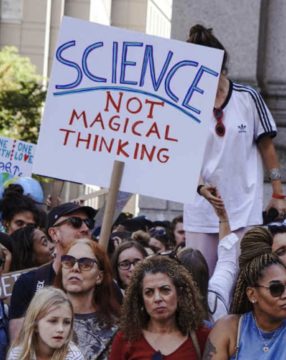Bob Berwyn in Undark:
 It’s been more than 30 years since the Intergovernmental Panel on Climate Change first warned the world that greenhouse gases were dangerously warming the global climate. Decades of United Nations climate negotiations followed, culminating in the 2015 Paris agreement. Yet, in that time, humans have pumped more carbon dioxide into the air than in the preceding 240 years.
It’s been more than 30 years since the Intergovernmental Panel on Climate Change first warned the world that greenhouse gases were dangerously warming the global climate. Decades of United Nations climate negotiations followed, culminating in the 2015 Paris agreement. Yet, in that time, humans have pumped more carbon dioxide into the air than in the preceding 240 years.
Since that first IPCC report in 1990, emissions have increased 60 percent and the average global temperature has climbed about 0.75 degrees Celsius, contributing to rapid increases in deadly heat waves, tropical storms, droughts, and sea level rise on every continent. According to the United Nations Emissions Gap report released Oct. 27, the most recently updated climate pledges shave about 7.5 percent off 2030 emissions, while a reduction of 55 percent is needed to meet the target of the Paris agreement. That puts Earth on track to heat 2.7 degrees Celsius by 2100, a dangerous amount of warming well beyond the Paris agreement target of 1.5 degrees Celsius.
The reasons emissions and temperatures have continued to increase, even as their impacts and global efforts to rein them in have grown, are complex, and the answers depend on whom you ask. But some recent climate studies suggest a common thread in the hows and whys: the continued failure to put environmental justice at the center of climate negotiations.
More here.
